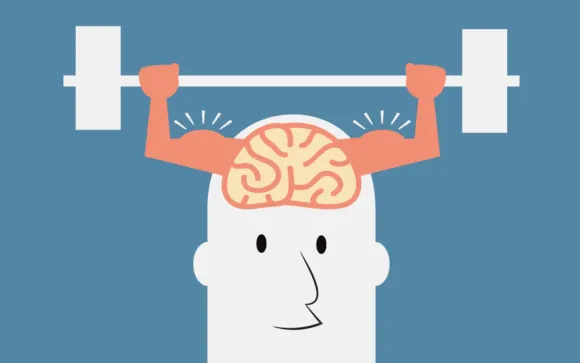A good diet is essential for overall health. It is essential for maintaining energy, supporting bodily functions and preventing chronic disease. Making the right diet choices can be difficult with so much conflicting information. This practical guide simplifies nutrition’s key principles to help you develop healthy and sustainable eating habits.
Understanding Macronutrients
The essential nutrients which provide energy to the body and support its various functions are called Macronutrients. These include carbohydrates, fats and proteins. Each of these nutrients plays a specific role in maintaining good health.
The body’s main source of energy is carbohydrates. They are found in whole grains, fruits and vegetables. They provide fiber, which regulates blood sugar and aids digestion. Complex carbohydrates like brown rice, quinoa and oats are better than refined carbs for maintaining steady energy levels.
Proteins are necessary for the building and repair of tissues, production of enzymes and immune function. Lean meats and poultry, fish, eggs as well as legumes, nuts and dairy are all good sources. By consuming a variety protein sources, you can ensure that your body is getting the essential amino acids necessary for muscle development and health.
It is important to understand that fats play an essential role in brain function, hormone production and cell growth. Healthy fats such as avocados, olive oils, nuts, seeds and fatty fish are best. Trans fats and excessive saturated fatty acids found in processed food should be avoided.
Micronutrients are important but in smaller quantities
Micronutrients such as vitamins and minerals are essential for health. These nutrients are important for immune function, bone and metabolic health.
Vitamin C, found in citrus fruits, boosts the immune system. Vitamin D (obtained through sunlight and fortified food) promotes bone health. The B vitamins found in leafy greens and whole grains are vital for brain and energy function.
Minerals such as calcium, magnesium, and iron are essential for muscle strength, oxygen transport and bone strength. These minerals are found in dairy products, leafy vegetables, nuts and lean meats.
The importance of water in nutrition
Water plays a vital role in good nutrition. Water is essential for digestion, body temperature regulation, and overall body functions. Dehydration may cause fatigue, headaches and cognitive impairment. Drink at least eight glasses of water per day, and adjust your intake according to activity level and weather. Drinking herbal teas, water infused with herbs, and eating hydrating food like cucumbers or watermelon can also help you stay hydrated.
The role of fiber in digestive health
Fiber plays an important role in a healthy diet. It supports digestion and prevents constipation. Fibers found in fruits, oats and beans help lower cholesterol, while fibers found in vegetables and whole grains promote healthy bowel movements. Fiber-rich foods can also help with weight loss by increasing satiety.
Planning a balanced diet
A healthy diet is a well-planned one that includes foods rich in essential nutrients. Structure meals to ensure a balanced macronutrient intake for optimal health and energy. The “plate method” is a practical way to eat. It suggests that you fill half of your plate with vegetables, a quarter with lean proteins, and a quarter with whole grains.
Home-prepared meals allow for greater control of ingredients and portions. By including diverse food groups, experimenting with new recipes and cooking in bulk, it is easier to maintain healthy eating habits.
How to Read Food Labels and Make Smart Decisions
By understanding food labels, you can make informed choices. Ingredient lists, serving size, and nutritional information are all important aspects to consider. Avoid products that have excessive amounts of sugar, sodium and artificial additives. By choosing minimally-processed, whole foods, you can ensure a healthy diet that is free of harmful chemicals.
Healthy Food on a Budget
Good nutrition does not need to be expensive. Costs can be reduced by buying seasonal produce, choosing store-brand products, and buying in bulk. By preparing meals at home rather than dining out, you can save money and ensure healthier ingredients. Frozen fruits and vegetables are a great alternative to fresh fruit and vegetables. They retain their nutrients.
Portion Control and Mindful Eating
Mindful eating involves paying attention and enjoying each bite while avoiding distractions. Overeating can be prevented by eating slowly and knowing when you’re full. Healthy eating habits include using smaller plates, weighing portions and avoiding emotional eating.
Processed foods and Added Sugars
Highly-processed foods contain unhealthy fats and sodium and often added sugars. This can lead to weight gain or health problems. By reading the labels of processed foods and selecting natural, whole food products, you can reduce your consumption. Sugary drinks, candies and refined snacks should be reduced to maintain blood sugar levels.
Adapting nutrition to lifestyle and dietary needs
Nutritional requirements vary depending on the age, level of activity, and health condition. Athletes need more protein and calories, while older adults might require increased calcium and vitamin d.
Final thoughts
Good Nutrition is about variety, balance, and sustainable choices. Maintaining a healthy diet is a habit that can be maintained for life by focusing on whole food, staying hydrated and practicing portion control. Consistently improving your eating habits can have a lasting impact on your health and well-being.



